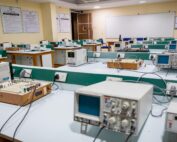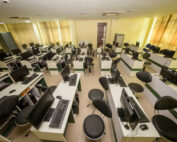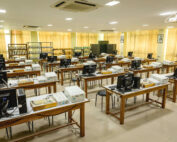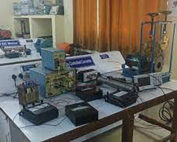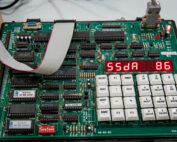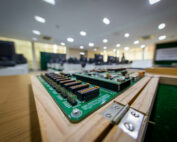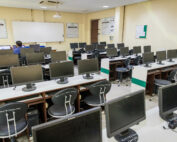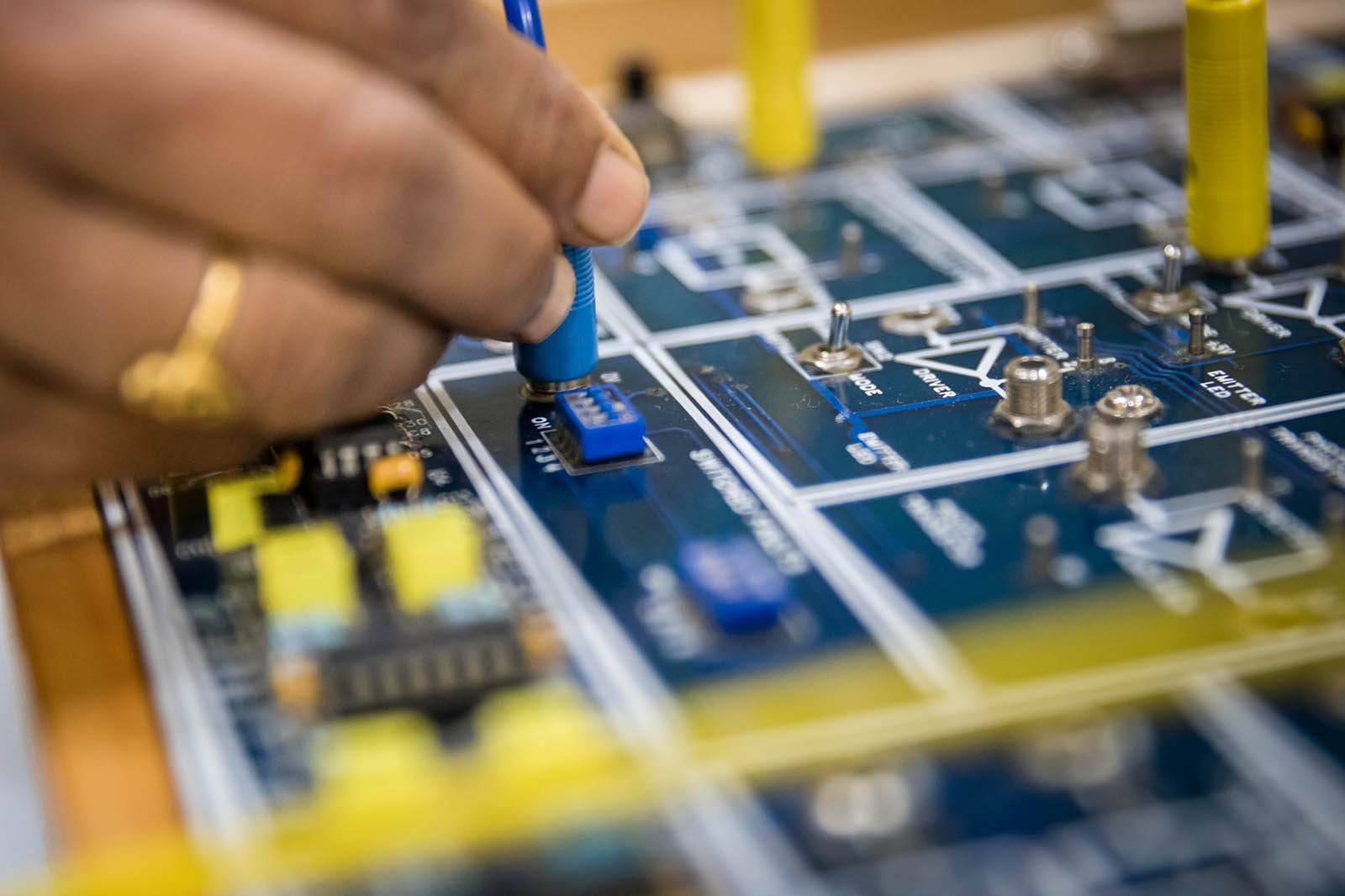B. Tech in Electronics and Telecommunication Engineering
The B. Tech program in Electronics and Telecommunication Engineering prepares its students for an illustrious career in Electronics, communication and IT industry. The program follows an internationalized curriculum in compliance with the requirements of statutory bodies as well as those of national and international accreditation agencies. Emphasis is laid in experiential, project based learning and impact studies which also prepares students for higher studies and entrepreneurial endeavors. The curriculum is flexible allowing students to opt for industry elective courses, different minors and honors. The program is offered from School of Electronics Engineering having world class infrastructure in terms of smart class rooms, state of the art labs, centers of excellence (in collaboration with corporate giants in the domain of Electronic solutions) and Research labs to facilitate students in their innovations in robotics, artificial intelligence, signal processing systems, green energy solutions, embedded systems and wireless communication.
- Candidates who have completed or are appearing 10+2 examination or equivalent are only eligible to apply for the B.Tech(4 Years) course of the University.
- They should have studied in regular full-time formal education during their schooling/college.
- Pass in 10 +2 or its equivalent with at least 60% marks in Physics, Chemistry, and Mathematics taken together.
Program Educational Objectives (PEO)
The B. Tech program in Electronics and Telecommunication Engineering aims to prepare the graduates with the following objectives:
- Lead a successful career in industries or undertake entrepreneurial endeavors and provide
solutions in the areas of electronic system design, communication & networking and allied
areas of Electronics and Telecommunication engineering or pursue advanced studies. - Utilize their knowledge, skills and resources to design, invent and find creative and innovative
solutions to engineering problems in a multidisciplinary work environment following
appropriate ethical practices. - Develop attitude in lifelong learning, apply and adapt new ideas as the technology evolves.
Program Outcomes :
a) Engineering knowledge: Ability to apply the knowledge of mathematics, science, engineering
fundamentals, and an engineering specialization to the solution of complex engineering
problems.
b) Problem analysis: Ability to identify, formulate, review research literature, and analyze
complex engineering problems reaching substantiated conclusions using first principles of
mathematics, naturalsciences, and engineering sciences.
c) Design/Development of solutions: Ability to design solutions for complex engineering
problems and design system components or processes that meet the specified needs with
appropriate consideration for the public health and safety, and the cultural, societal, and
environmental considerations.
d) Conduct investigations on complex problems: Ability to use research-based knowledge and
research methods including design of experiments, analysis and interpretation of data, and
synthesis ofthe information to provide valid conclusions.
e) Modern tool usage: Ability to create, select, and apply appropriate techniques, resources, and
modern engineering and IT tools including prediction and modeling to complex engineering
activities with an understanding ofthe limitations.
f) The engineer and society: Ability to apply reasoning informed by the contextual knowledge to
assess societal, health, safety, legal and cultural issues and the consequent responsibilities
relevant to the professional engineering practice.
g) Environment and sustainability: Ability to understand the impact of the professional
engineering solutions in societal and environmental contexts, and demonstrate the knowledge
of, and need forsustainable development.
h) Ethics: Ability to apply ethical principles and commit to professional ethics and responsibilities
and norms ofthe engineering practice.
i) Individual and team: Ability to function effectively as an individual, and as a member or leader
in diverse teams, and inmultidisciplinarysettings.
54
j) Communication: Ability to communicate effectively on complex engineering activities with the
engineering community and with society at large, such as, being able to comprehend and write
effective reports and design documentation, make effective presentations, and give and receive
clearinstructions.
k) Project management and finance: Ability to demonstrate knowledge and understanding of the
engineering and management principles and apply these to one’s own work, as a member and
leaderin a team, tomanage projects and inmultidisciplinary environments.
l) Life-long learning: Ability to recognize the need for, and have the preparation and ability to
engage in independent and life-long learning in the broadest context oftechnological change.
Programme Specific Outcomes (PSO) :
The program specific outcomes are:
a) Ability to design, and comprehend electronics sub-systems using the knowledge of electronic
circuits, signal processing, communication engineering, networking and embedded technology.
b) Ability to carry out research in the fields of VLSI, advanced communication and related
technologies.
c) Ability to design and develop complex products using suitable tools for societal and
engineering needs with skills to communicate effectively in groups.



